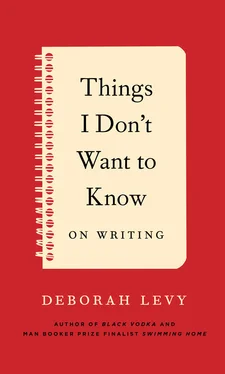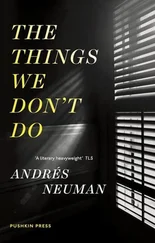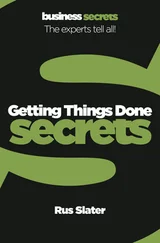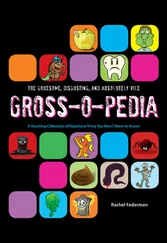‘WHY DON’T YOU KEEDS (Farid always said keeds instead of kids) EVER PUT THE LID BACK ON?’
He was on to something. Although we never talked about it, the whole lid thing was something of a mystery to us all. We secretly wanted to live in a house where everything had a lid on it. Not a day went past without one of us staring forlornly at yet another bottle or jar that now stood lidless on the shelves. We never asked each other to put the lid back on because we suspected we might be incapable of doing this ourselves. It was possible that leaving the lids off happened after Dad left the house, but we really couldn’t remember and didn’t want to think about it anyway. While Sam drummed wildly, his shiny eyes fixed on the wall opposite the sofa, I asked Farid if he knew where our mother was? Farid always knew where Mom was because she was his bread and butter. In fact, she was so nice to Farid we had started to resent him. ‘Your poor mother,’ Farid snarled, ‘has gone shopping.’
‘SHOPP-ING SHOPP-ING SHOPP-ING,’ Sam chanted over and over again, laughing and drumming at the same time. Farid lunged at Sam and snatched the drum out of his hands. And then he grabbed the bamboo stick as well and started to beat Sam’s leg with it. Above his head was a world peace poster showing three children playing happily in a field with a ball, a yoyo and a badminton racket. Farid was now out of control. He bent his fat knees so that he could strike harder. Sometimes he missed Sam and hit the wall instead.
‘DO YOU NOT UNDERSTAND WHAT IT IS LIKE TO BE A STRANGER IN YOUR COUNTRY?’
Farid saying that made me laugh hysterically while Sam howled.
‘YOU KEEEDS’ — whack whack — ‘DO YOU NOT UNDERSTAND’ — whack — ‘THAT I AM NOT FROM YOUR COUNTRY?’
The top button of his shirt had popped off and sweat dripped down his cheeks.
‘I DO NOT HAVE EVEN ONE PAIR OF SHOES THAT ARE RIGHT FOR THIS WET COLD PLACE.’
That’s what happened to us too. When we first arrived in England we never had the right clothes. In January we wore duffle coats and flip flops. February was the month of wellingtons and a sleeveless polka-dot dress. And June, which was supposed to be the beginning of summer, was the month we all finally got it together and wore thermal vests, boots, gloves and thick woollen hats.
I liked it that Farid had said, ‘Your country’. Yes, I said to myself, I am English. As English as they come. While Farid tried to beat my brother, I looked at the curtains my father had hemmed in blanket stitch one night after work. He had made them a week before he left the family house. Sam and I had stood on either side of him, leaning in to see his big fingers holding the tiny silver needle. When Sam tied a knot in the cotton thread and handed it back, Dad had said: ‘I think we are getting to know each other again aren’t we?’
Farid was nothing like our Dad. For a start, had our father still lived at home, he would have said, ‘Don’t torture the oven. Smooth the Brillo pad gently over the surface.’ Why did he always say don’t torture the kettle, don’t torture the light switch, don’t torture the ice cubes? My father had a very intimate relationship with objects like kettles and door handles and keys. According to him they had to be understood, never bullied or tortured. To fill a kettle through its snout and not to take the lid off was to humiliate the kettle. To turn a door handle too roughly was to ‘duff it up’. He would not tolerate what he called ‘brutality’ to inanimate objects.
While Farid and my brother rolled on the floor punching each other, I could hear people mowing their lawns and washing their cars, the sort of things that happened in England on Saturdays, while Joan next door shouted to her dog, ‘HOLLY HOLLY HOLLY come home for your tea.’
Farid had somehow managed to get up onto his feet and was staring at Sam’s face.
‘Som,’ he said.
Farid seemed to want to say something else but couldn’t get the words out. Still staring at my brother, he eventually asked where our father actually was? Why was it that he was not living with us in the family house?
‘Mom and Dad have separated.’
Farid shook his head, puzzled. For the first time since he arrived on our door step it occurred to me he might be a kind man. He even started to collect up the lids from the floor.
When Mom got back with the shopping, she said, ‘Everything is very calm. How nice to come back to children who are not fighting with each other for a change.’ She lifted up a bottle of Asti Spumante from the shopping bags and slipped it in to the fridge along with six pots of hazelnut yogurt. Good, I thought. I’ll take that fizzy wine out of the fridge when it’s cold and I’ll run with it to the park. Then I’ll drink it all and jump under a moving car, leaving my napkins with ENGLAND biro’d on them to my biographers. They will flock to the house in Finchley to see where I lived and a blue plaque will be nailed on to the bricks and mortar of our first English house. As usual my brother took it upon himself to interrupt my thoughts and stir things up.
‘Farid hit me,’ Sam whined to Mom.
‘Did you Farid?’
‘Yes, I did,’ Farid confessed in a meek, pathetic voice.
‘He was banging the drum while I was translating Marx’s essay on wage labour written for the German Working-Man’s Club in Brussels.’
‘Farid,’ Mom said sternly, ‘Never hit my children again or you’ll be out on your ear.’
Our au pair smiled. He looked happy for the first time since he arrived.
That night, we ordered an Indian take-away and watched Steptoe and Son on the television. Sam lay with his head in Mom’s lap and begged to be spoonfed dhal like a pasha. Farid sat in the armchair Dad had always sat in but we didn’t mind anymore. He said he had a stomach ache from all the stress yet managed to finish his own lamb madras and polish off my chicken korma as well.
‘I like this family very much. You are good people even though you do not know how to make a home. But I have no home in England so I am honoured you have given me a room in your tent.’
By the time I got to bed, I felt weird and shaky. I had lived in England for six years and was nearly as English as they come. All the same I had come from somewhere else. I missed the smell of plants I could not name, the sound of birds I could not name, the murmur of languages I could not name. Where exactly was Southern Africa? One day I would look at a map and find out. That night I lay awake all night long. I had so many questions to ask the world from my bedroom in West Finchley about the country I was born in. How do people become cruel and depraved? If you torture someone, are you mad or are you normal? If a white man sets his dog on a black child and everyone says that’s okay, if the neighbours and police and judges and teachers say, ‘That’s fine by me,’ is life worth living? What about the people who don’t think it’s okay? Are there enough of them in the world?
As the milkman clanked down milk bottles on our door step, I suddenly knew why the lids for honey and ketchup and peanut butter were never in their right place in our family house. The lids, like us, did not have a place. I was born in one country and grew up in another, but I was not sure which one I belonged to. And another thing. I did not want to know this thing, but I did know all the same. Putting a lid on was like pretending our mother and father were back together again, attached to each other instead of prised apart.
I rolled off the bed and found the napkins I had saved from the greasy spoon. I saw the word ‘England’ biro’d into the tissue, crumpled and stained with bacon fat, but I couldn’t work out what I was trying to say. I knew I wanted to be a writer more than anything else in the world, but I was overwhelmed by everything and didn’t know where to start.
Читать дальше












